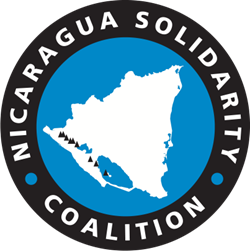LABOR
Labor Rights in Nicaragua
Nicaragua has progressive labor laws which guarantee workers’ rights such as two months paid maternity leave, one month of vacation per year, and payment of a one-month end-of-year bonus. By law, workers in the formal sector must be signed up for social security (INSS), which provides them with medical care and pays into their retirement fund (workers pay 7% of their salary to INSS, employers pay 26.5%).
Since the Sandinista government came back into office in 2007, government institutions have done a much better job of enforcing labor laws and supporting workers. In that time, 3,010 tripartite labor negotiation sessions have been held with representatives from the government, employers, and the unions.
Trade Unions
Nicaragua is a country with many organized labor unions and trade union leaders can be found at all levels of government as well. “Union leaders in the health sector and education sector, artisans, peasants, workers, the self-employed,” are all represented there, says Nicaraguan National Assembly Deputy Flor Avellán, head of the union of self-employed workers. “That is something historic, it really fills one with pride because...when our members, our sisters and brothers look at us they say, ‘Wow, now we have a [National Assembly] deputy; now it's us in there; we are really included.’”
There have been 1,636 new unions formed since 2006, for a total of more than 1.2 million Nicaraguan workers affiliated in unions. In 2023, 61 collective bargaining agreements were signed, benefitting nearly 1.8 million workers, 52% of whom are women.
Cooperatives
In that same period, 4,872 new worker-owned cooperatives have been formed with a total of 131,730 members, 60,000 of whom are women.
Wages
· 550% increase in minimum wage over 17 years, benefitting 258,715 workers, of whom 40% are women
· 681% increase in minimum wage in free trade zones since 2006
· 138,374 women who were working for less than minimum wage have had their salaries raised to the minimum
Compliance
· 70,452 companies have signed commitments to not use child labor and to respect the rights of adolescent workers
· Since 2007, the number of annual workplace labor rights inspections has tripled
· Since 2007, the number of annual child labor inspections has increased 46-fold
· 40,604 workers have been supported to file claims against their employers, resulting in $8.8 million in awards for workers
Inclusion
· The Labor Code has been translated into the Miskitu language (Wark Laka Plamaia)
· 14,750 non-discrimination and equality inspections have been have been conducted at work sites since 2007 when the policy was implemented, restoring the right to work to 192,415 women workers
Articles
2023
“Nicaraguan Immigration Down Despite US Efforts to Encourage it.” Covert Action Magazine, 18 May 2023 by Nan McCurdy. [In Spanish here] 2018 US-backed coup attempt, sanctions, pandemic, Costa Rica, CBP One Parole process (cell-phone app)
“New US Immigration Policies’ Effect on Nicaragua.” Dissident Voice, 11 Feb. 2023 by Nan McCurdy. parole process, sanctions, brain drain, deportation
“Nicaraguan migrants at the U.S. border – are they being ‘pushed’ or ‘pulled?’” NicaNotes, 5 Jan. 2023 by John Perry. “repressive dictatorships,” economic opportunities, remittances, 2018 violent coup attempt, economic sanctions
2022
“Community Building: Involving the Next Generation.” NicaNotes, 29 Sept. 2022 by Winnie Narvaez. Dolores Esquivel, Gloria Quintanilla women’s co-operative, Santa Julia, Rural Workers Association (ATC), ATC Rural Women’s Movement (MMC)
2021
“Benefits for Workers in Nicaragua’s Free Trade Zones: An Interview with Pedro Ortega.” NicaNotes, 25 Nov. 2021 by Jorge Capelan. Free Trade Zones, labor, unions, trade unions, jobs, labor rights, employment, economy


